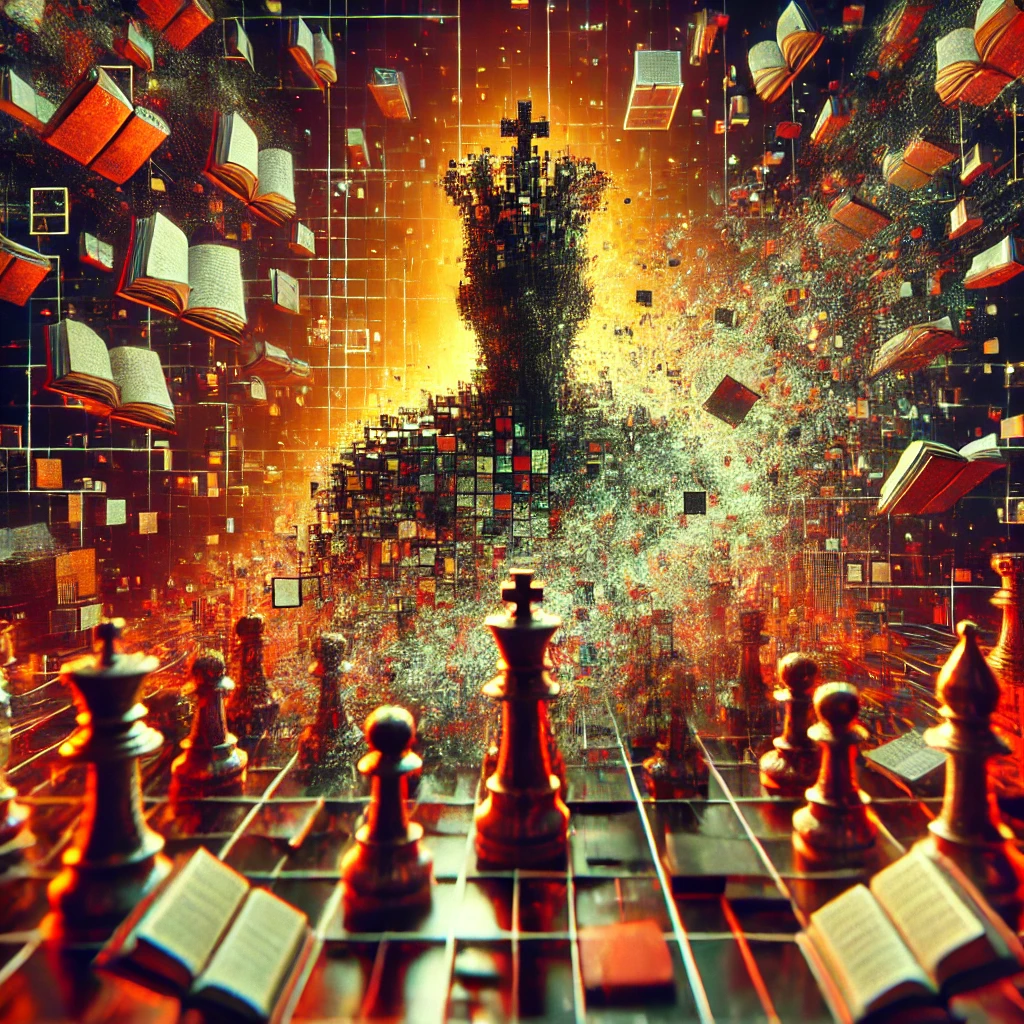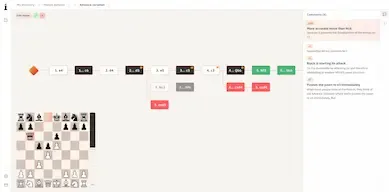
Becoming a chess Grandmaster (GM) is one of the most challenging and prestigious achievements in the world of chess. It signifies not only exceptional skill but also years of dedication, rigorous training, and a deep understanding of the game. The journey to this elite title is arduous, filled with intense study, practice, and competition against some of the best players globally. However, it’s precisely this challenging path that makes attaining the GM title so rewarding. In this comprehensive guide, we’ll delve into the steps and strategies essential for reaching this pinnacle of chess mastery.
Table of Contents
- Master the Fundamentals
- Develop a Solid Opening Repertoire
- Enhance Tactical and Calculation Skills
- Deepen Strategic Understanding
- Intensive Endgame Study
- Critical Game Analysis
- Work with a Qualified Coach
- Participate in High-Level Tournaments
- Physical and Mental Fitness
- Understand FIDE Title Requirements
- Consistent Hard Work and Humility
- Utilize Effective Resources
1. Master the Fundamentals
Before embarking on the journey to Grandmaster, ensure that you have a strong grasp of the basic rules and principles of chess.
- Learn the Rules: Understand how each piece moves, the objective of the game, and special moves like castling and en passant.
- Basic Tactics: Familiarize yourself with fundamental tactics such as pins, forks, skewers, and discovered attacks.
- Essential Endgames: Know how to execute basic checkmates (e.g., king and queen vs. king).
Resources:
2. Develop a Solid Opening Repertoire
A strong opening repertoire is crucial for setting a solid foundation in your games.
- Choose Suitable Openings: Select openings that fit your style, whether aggressive or positional.
- Understand Opening Principles: Focus on piece development, control of the center, and king safety rather than rote memorization.
- Expand Gradually: Start with a few key openings and build your repertoire over time, analyzing each game to refine your choices.
Tips:
- Use tools like ChessFlare to organize and annotate your openings.
- Study grandmaster games to see how openings transition into middlegames.
3. Enhance Tactical and Calculation Skills
Strong tactical ability and calculation are essential at the Grandmaster level.
- Regular Practice: Solve tactical puzzles daily to improve pattern recognition and calculation speed.
- Analyze Tactical Motifs: Study common tactical themes and motifs to quickly identify opportunities in your games.
- Blindfold Chess: Practice playing without sight of the board to enhance visualization skills.
Recommended Resources:
4. Deepen Strategic Understanding
Beyond tactics, a deep understanding of strategy distinguishes top players.
- Study Classical Games: Analyze games from legendary players to understand strategic concepts.
- Learn Positional Concepts: Focus on pawn structures, weak squares, space advantage, and piece activity.
- Apply in Practice: Try to implement strategic ideas in your own games and analyze the outcomes.
5. Intensive Endgame Study
Mastering endgames is vital, as many games are decided in this phase.
- Fundamental Endgames: Start with basic king and pawn endgames, understanding opposition and key squares.
- Complex Endgames: Study rook endgames, which are the most common, and minor piece endgames.
- Endgame Strategy: Learn how to transition advantages from the middlegame into a winning endgame.
Practice:
- Solve endgame studies and puzzles.
- Play out endgames against engines or training partners.
6. Critical Game Analysis
Analyzing your own games is one of the most effective ways to improve.
- Post-Game Review: After each game, review it to identify mistakes and missed opportunities.
- Use Engines Wisely: While engines can point out tactical errors, focus on understanding the reasons behind your mistakes.
- Maintain a Game Journal: Keep detailed notes on your thought processes during games.
Tools:
7. Work with a Qualified Coach
A skilled coach can provide personalized guidance and accelerate your progress.
- Find the Right Coach: Look for someone experienced, with a teaching style that suits you.
- Set Clear Goals: Work with your coach to establish short-term and long-term objectives.
- Be Receptive to Feedback: Constructive criticism is crucial for improvement.
Benefits:
- Tailored training plans
- Objective assessment of strengths and weaknesses
8. Participate in High-Level Tournaments
Gaining experience against strong competition is essential.
- Play Regularly: Participate in both local and international tournaments.
- Seek Strong Opponents: Playing against higher-rated players challenges you and exposes you to new ideas.
- Learn from Every Game: Win or lose, each game offers valuable lessons.
Note:
- Ensure the tournaments are FIDE-rated if you’re aiming for norms.
9. Physical and Mental Fitness
Chess requires stamina and concentration.
- Physical Health: Regular exercise, a balanced diet, and adequate sleep improve cognitive function.
- Mental Training: Techniques like meditation and mindfulness can enhance focus and reduce stress.
- Time Management: Efficient use of your time during games and in preparation is crucial.
10. Understand FIDE Title Requirements
Becoming a Grandmaster involves meeting specific criteria set by FIDE.
- Achieve a 2500 Elo Rating: You must reach a FIDE rating of 2500 at any point.
- Earn Three GM Norms: Obtain norms by performing at a 2600 level in tournaments meeting certain conditions (opponents from different countries, titled players, etc.).
- Stay Informed: Familiarize yourself with the latest FIDE regulations, as they can change.
Reference:
11. Consistent Hard Work and Humility
Persistence and a willingness to learn are key.
- Regular Training: Establish a disciplined study routine covering all aspects of the game.
- Set Realistic Goals: Break down your ultimate goal into achievable milestones.
- Stay Humble: Acknowledge that there’s always more to learn, regardless of your current level.
Mindset:
- Embrace challenges as opportunities for growth.
- Learn from losses without becoming discouraged.
12. Utilize Effective Resources
Make the most of the tools and materials available.
- Books and Literature: Build a library of reputable chess books covering various topics.
- Online Platforms: Use websites like Chess.com, Lichess.org, and Chess24 for training and playing.
- Software: Invest in chess engines and databases for analysis and opening preparation. How to learn Chess with ChessFlare? Additional Resources:
- Videos and Lectures: Watch instructional content from Grandmasters to gain insights.
- Chess Communities: Engage with clubs and online forums to exchange ideas and experiences.
Conclusion
Embarking on the journey to become a Grandmaster is a formidable endeavor that demands dedication, resilience, and a passion for the game. By mastering the fundamentals, continuously honing your skills, seeking guidance, and competing at higher levels, you can progressively move closer to your goal. Remember that progress may be gradual, and setbacks are part of the process. Stay committed to your training, remain open to learning, and maintain a positive mindset. With perseverance and hard work, achieving the Grandmaster title is an attainable ambition.
Additional Tips
- Stay Updated: Keep abreast of the latest developments in chess theory and practice.
- Analyze Top-Level Games: Regularly study games from elite tournaments to understand current trends.
- Balance Chess with Life: Ensure you maintain a healthy balance to prevent burnout.
Resources
- Game Analysis: Lichess Game Analysis
- Chess Lessons: Lichess Study
- Tactical Training: Lichess Puzzles
By integrating these strategies and utilizing the resources effectively, you enhance your potential to reach the Grandmaster level. Remember, every Grandmaster was once a beginner who never gave up.
Frequently Asked Questions
What rating is grandmaster in chess?
What elo is grandmaster in chess?
Who was the first chess world champion?
Who is the world champion of chess?
How much a chess grandmaster make?

